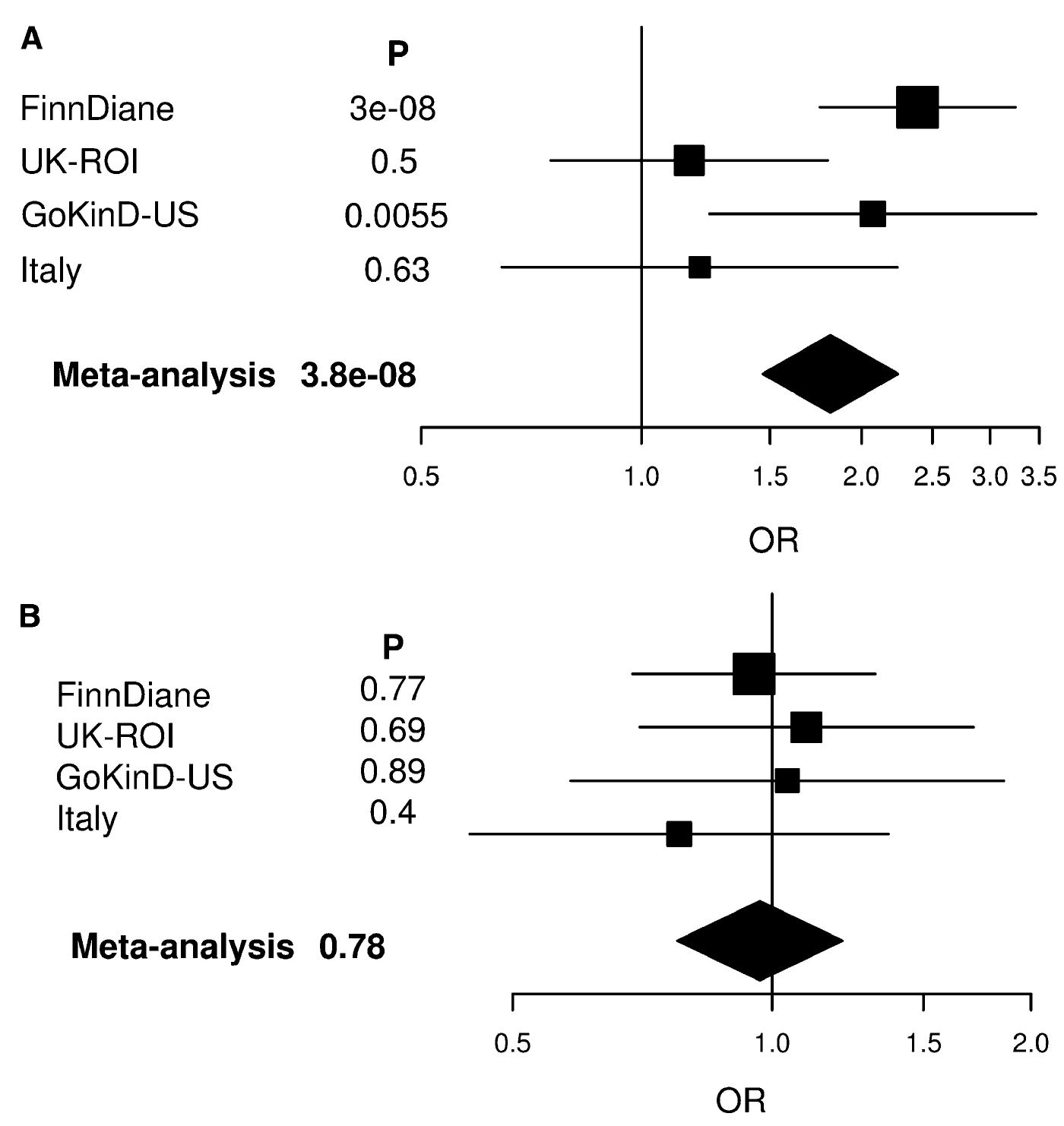Chromosome 2q31.1 is associated with ESRD in women with type 1 diabetes

Sex and genetic variation influence the risk of developing diabetic nephropathy and ESRD in patients with type 1 diabetes. We performed a genome-wide association study in a cohort of 3652 patients from the Finnish Diabetic Nephropathy (FinnDiane) Study with type 1 diabetes to determine whether sex-specific genetic risk factors for ESRD exist. A common variant, rs4972593 on chromosome 2q31.1, was associated with ESRD in women (P<5×10(-8)) but not in men (P=0.77). This association was replicated in the meta-analysis of three independent type 1 diabetes cohorts (P=0.02) and remained significant for women (P<5×10(-8); odds ratio, 1.81 [95% confidence interval, 1.47 to 2.24]) upon combined meta-analysis of the discovery and replication cohorts. rs4972593 is located between the genes that code for the Sp3 transcription factor, which interacts directly with estrogen receptor ? and regulates the expression of genes linked to glomerular function and the pathogenesis of nephropathy, and the CDCA7 transcription factor, which regulates cell proliferation. Further examination revealed potential transcription factor-binding sites within rs4972593 and predicted eight estrogen-responsive elements within 5 kb of this locus. Moreover, we found sex-specific differences in the glomerular expression levels of SP3 (P=0.004). Overall, these results suggest that rs4972593 is a sex-specific genetic variant associated with ESRD in patients with type 1 diabetes and may underlie the sex-specific protection against ESRD.
Sandholm_GENIE_female_ESRD_JASN_2013.pdf


